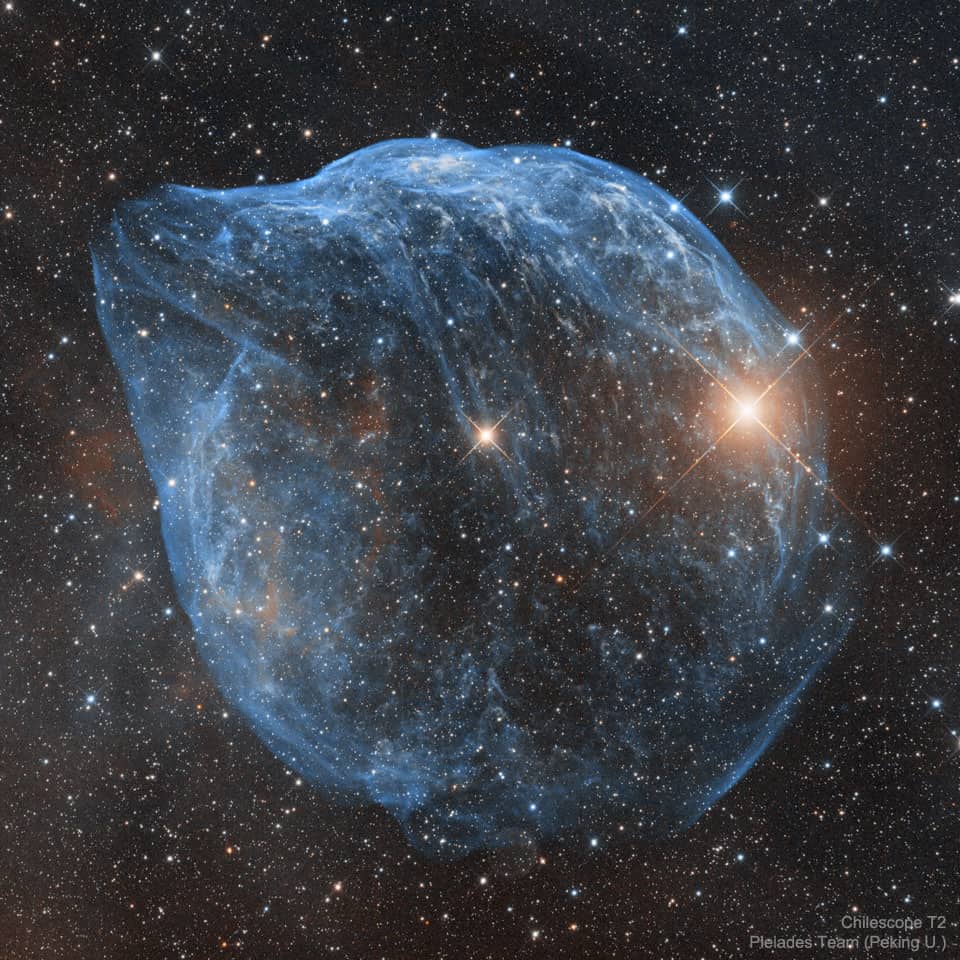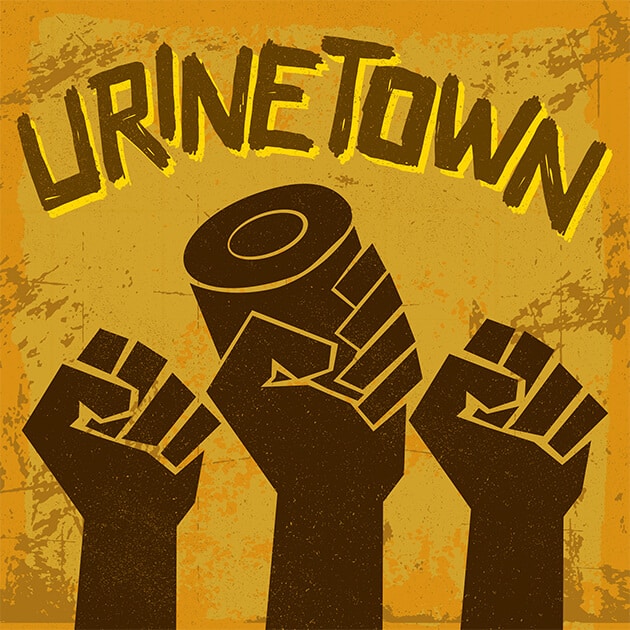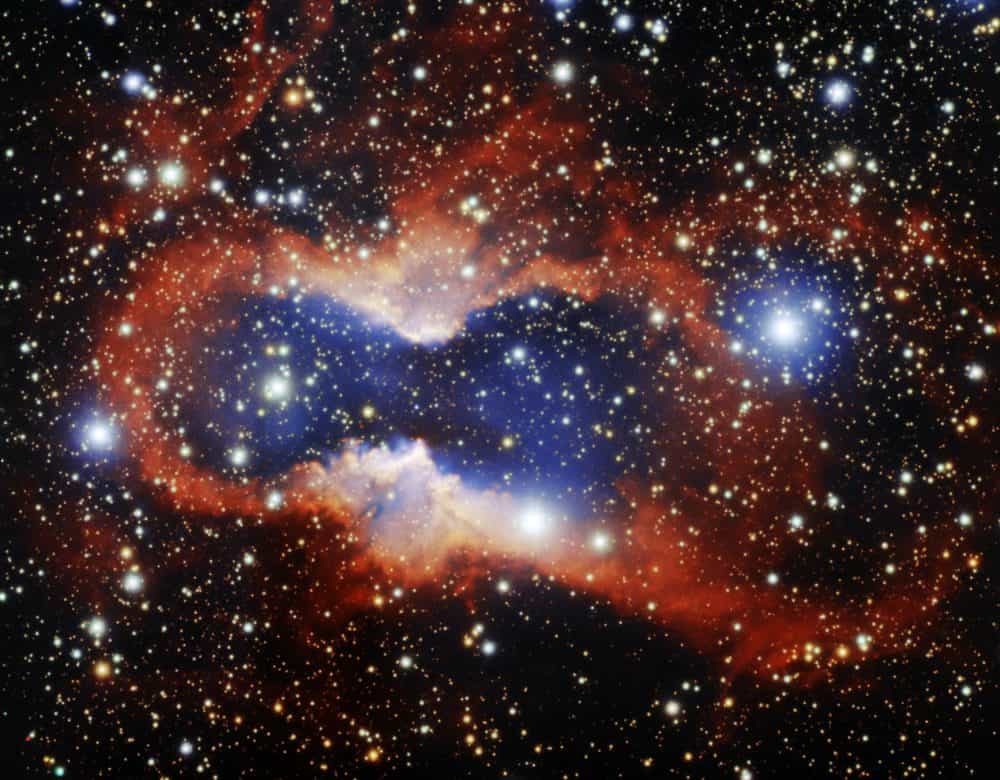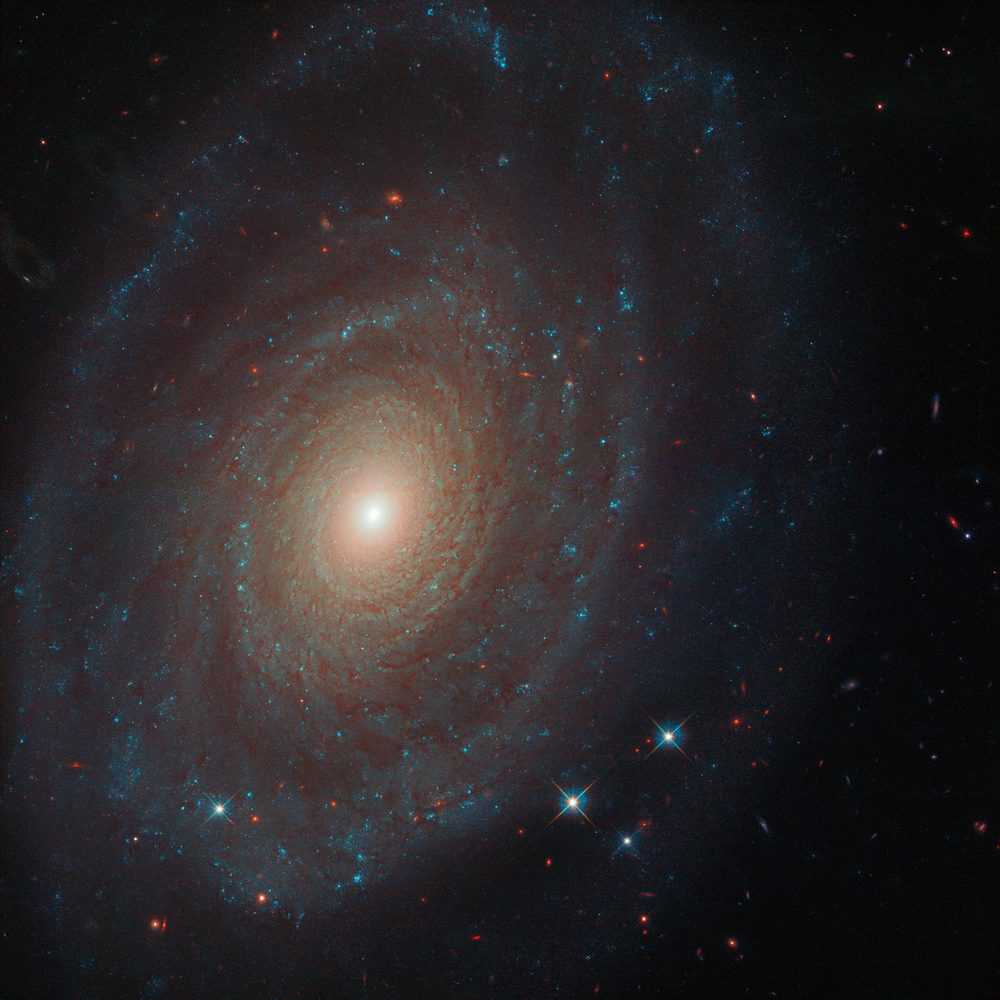Blog
Cataloged as Sharpless 2-308 it lies some 5,200 light-years away toward the constellation of the Big Dog (Canis Major) and covers slightly more of the sky than a Full Moon. That corresponds to a diameter of 60 light-years at its estimated distance. The massive star that created the bubble, a Wolf-Rayet star, is the bright one near the center of the nebula. Wolf-Rayet stars have over 20 times the mass of the Sun and are thought to be in a brief, pre-supernova phase of massive star evolution. Fast winds from this Wolf-Rayet star create the bubble-shaped nebula as they sweep up slower moving material from an earlier phase of evolution. The windblown nebula has an age of about 70,000 years. Relatively faint emission captured in the featured expansive image is dominated by the glow of ionized oxygen atoms mapped to a blue hue.

Larry Eugene Carlton (born March 2, 1948) is an American guitarist who built his career as a studio musician in the 1970s and ’80s for acts such as Steely Dan and Joni Mitchell. He has participated in thousands of recording sessions, recorded on hundreds of albums in many genres, for television and movies, and on more than 100 gold records. He has been a member of the jazz fusion group the Crusaders, the smooth jazz band Fourplay, and has maintained a long solo career. Carlton was born in Torrance, California in 1948 and at the age of six began guitar lessons. His interest in jazz came from hearing guitarist Joe Pass on the radio. From Pass he moved on to jazz guitarists Barney Kessel and Wes Montgomery and blues guitarist B.B. King. He went to junior college and Long Beach State College while playing professionally at clubs in Los Angeles.
During the 1970s, he found steady work as a studio musician on electric and acoustic guitar in a variety of genres: pop, jazz pop, rock, rhythm and blues, soul and country. Carlton appeared on hundreds of recording sessions with Steely Dan, Joni Mitchell, Linda Ronstadt, Michael Jackson, Quincy Jones, Bobby Bland, Sammy Davis, Jr., Paulinho Da Costa, the Fifth Dimension, Herb Alpert, Christopher Cross, Dolly Parton, Andy Williams, and the Partridge Family. Carlton performed on Mike Post‘s 1981 “Theme from Hill Street Blues“.[citation needed] In 1982, he appeared on The Nightfly by Donald Fagen, lead singer for Steely Dan.
more...Lewis Allan Reed (March 2, 1942 – October 27, 2013) was an American musician, singer, songwriter and poet. He was the rhythm/lead guitarist, singer and principal songwriter for the rock band The Velvet Underground and had a solo career that spanned five decades. The Velvet Underground was not a commercial success during its existence, but became regarded as one of the most influential bands in the history of underground and alternative rock music.
After leaving the band in 1970, Reed released twenty solo studio albums. His second, Transformer (1972), was produced by David Bowie and arranged by Mick Ronson, and brought mainstream recognition. The album is considered an influential landmark of the glam rock genre, anchored by Reed’s most successful single, “Walk on the Wild Side“. After Transformer, the less commercial but critically acclaimed Berlin reached No. 7 on the UK Albums Chart. Rock ‘n’ Roll Animal (a live album released in 1974) sold strongly, and Sally Can’t Dance (1974) peaked at No. 10 on the Billboard200; but for a long period after, Reed’s work did not translate into sales, leading him deeper into drug addiction and alcoholism. Reed cleaned up in the early 1980s, and gradually returned to prominence with New Sensations (1984), reaching a critical and commercial career peak with his 1989 album New York.
Reed participated in the reformation of the Velvet Underground in the 1990s, and made several more albums, including a collaboration album with John Cale titled Songs for Drella which was a tribute to their former mentor Andy Warhol. Magic and Loss (1992) would become Reed’s highest-charting album on the UK Albums Chart, peaking at No. 6.
He contributed music to two theatrical interpretations of 19th century writers, one of which he developed into an album titled The Raven. He married his third wife Laurie Anderson in 2008, and recorded the collaboration album Lulu with Metallica. He died in 2013 of liver disease. Reed’s distinctive deadpan voice, poetic lyrics and experimental guitar playing were trademarks throughout his long career. Reed has been inducted into the Rock and Roll Hall of Fame twice; as a member of the Velvet Underground in 1996 and as a solo act in 2015.
more...Douglas Watkins (March 2, 1934 – February 5, 1962) was an American jazz double bassist. He was best known for being an accompanist to various hard bop artists in the Detroit area, including Donald Byrd and Jackie McLean.
Some of Watkins’ best-known work can be heard, when as a 22-year-old, he appeared on the 1956 album, Saxophone Colossus by tenor saxophonist Sonny Rollins, with Max Roach and Tommy Flanagan. From that session, the tunes “Blue Seven” and “St. Thomas,” especially, have become revered not only as evidence of Rollins’ original genius but as fine examples of Watkins’ work. Watkins died in an automobile accident on February 5, 1962, while traveling from Arizona to San Francisco to meet drummer Philly Joe Jones for a gig. He fell asleep at the wheel and was hit head-on by an oncoming truck. The other occupants of the car, pianist Sir Roland Hanna and trumpeter Bill Hardman, survived the crash.
more...
Edward F. Davis (March 2, 1922 – November 3, 1986), known professionally as Eddie “Lockjaw” Davis, was an American jazz tenor saxophonist.
Davis played with Cootie Williams, Lucky Millinder, Andy Kirk, Eddie Bonnemere, Louis Armstrong, and Count Basie, as well as leading his own bands and making many recordings as a leader. He played in the swing, bop, hard bop, Latin jazz, and soul jazz genres. Some of his recordings from the 1940s also could be classified as rhythm and blues.
His 1946 band, Eddie Davis and His Beboppers, featured Fats Navarro, Al Haig, Huey Long, Gene Ramey and Denzil Best.
In the 1950s, he was playing with Sonny Stitt, while from 1960 to 1962, he and fellow tenor saxophonist Johnny Griffin led a quintet. From the mid-1960s, Davis and Griffin also performed together as part of The Kenny Clarke-Francy Boland Big Band, along with other, mainly European, jazz musicians.
Davis died of Hodgkin’s lymphoma cancer in Culver City, California, at the age of 64.
https://www.youtube.com/watch?v=OoEVKolq700
more...Urinetown performance 2pm matinee at the Illusion Theater by Theater 55. In the not-so-distant future, a terrible water shortage and 20-year drought has led to a government ban on private toilets and a proliferation of paid public toilets, owned and operated by a single megalomaniac company: the Urine Good Company. If the poor don’t obey the strict laws prohibiting free urination, they’ll be sent to the dreaded and mysterious “Urinetown.” Music by Music by Music by Neal McIntosh, Jamie Carter, Chad Green, Paul Fontara and mick laBriola.

The latest image from the international Gemini Observatory showcases the striking planetary nebula CVMP 1. This object is the result of the death throes of a giant star and is a glorious but relatively short-lived astronomical spectacle. As the progenitor star of this planetary nebula slowly cools, this celestial hourglass will run out of time and will slowly fade from view over many thousands of years.
Located roughly 6500 light-years away in the southern constellation of Circinus (The Compass) this astronomical beauty formed during the final death throes of a massive star. CVMP 1 is a planetary nebula; it emerged when an old red giant star blew off its outer layers in the form of a tempestuous stellar wind As this cast-aside stellar atmosphere sped outwards into interstellar space, the hot, exposed core of the progenitor star began to energize the ejected gases and cause them to glow. This formed the beautiful hourglass shape captured in this observation from the international Gemini Observatory, a facility of NSF’s National Optical-Infrared Astronomy Research Laboratory.

more...
Winston Rodney OD (born 1 March 1945), better known by the stage name Burning Spear, is a Jamaican roots reggae singer-songwriter, vocalist and musician. Burning Spear is a Rastafarian and one of the most influential and long-standing roots artists to emerge from the 1970s.
Winston Rodney was born in Saint Ann’s Bay, Saint Ann, Jamaica. As a young man he listened to the R&B, soul and jazz music transmitted by the US radio stations whose broadcasts reached Jamaica. Curtis Mayfield is cited by Rodney as a major US musical influence along with James Brown. Rodney was deeply influenced as a young man by the views of the political activist Marcus Garvey, especially with regard to the exploration of the themes of Pan-Africanism and self-determination. In 1969, Bob Marley, who was also from Saint Ann, advised Rodney to approach Coxsone Dodd‘s Studio One label after Rodney sought his advice during a casual conversation.
Burning Spear was originally Rodney’s group, named after a military award given by Jomo Kenyatta, the first President of an independent Kenya, and included bass singer Rupert Willington. The duo auditioned for Dodd in 1969 which led to the release of their debut single “Door Peep” (the session also included Cedric Brooks on saxophone). They were then joined by tenor Delroy Hinds. The trio recorded several more singles for Dodd, and two albums, before they moved on to work with Jack Ruby in 1975. Their first recording with Ruby, “Marcus Garvey”, was intended as an exclusive track for Ruby’s Ocho Rios–based Hi-Power sound system, but was released as a single, giving them an immediate hit, and was followed by “Slavery Days”. These recordings featured the backing band The Black Disciples, which included Earl “Chinna” Smith, Valentine Chin, Robbie Shakespeare and Leroy Wallace. The group worked with Ruby on their third album, Marcus Garvey (1975), which was immediately successful and led to a deal with Island Records to give the album a wider release.
more...Ralph Towner (born March 1, 1940, Chehalis, Washington) is an American multi-instrumentalist, composer, arranger and bandleader. He plays the twelve-string guitar, classical guitar, piano, synthesizer, percussion and trumpet.
Towner was born into a musical family in Chehalis, Washington. His mother was a piano teacher and his father a trumpet player. Towner learned to improvise on the piano at the age of three. He began his career as a conservatory-trained classical pianist, attending the University of Oregon from 1958-1963, where he also studied composition with Homer Keller. He studied classical guitar at the Vienna Academy of Music with Karl Scheit from 1963-64 and 1967-68.
He joined world music pioneer Paul Winter‘s “Consort” ensemble in the late 1960s. He first played jazz in New York City in the late 1960s as a pianist and was strongly influenced by the renowned jazz pianist Bill Evans. He began improvising on classical and 12-string guitars in the late 1960s/early 1970s and formed alliances with musicians who had worked with Evans, including flautist Jeremy Steig, bassists Eddie Gómez, Marc Johnson, Gary Peacock, and drummer Jack DeJohnette.
Along with bandmates Paul McCandless, Glen Moore, and Collin Walcott, Towner left the Winter Consort in 1970 to form the group Oregon, which over the course of the 1970s issued a number of highly influential records mixing folk music, Indian classical forms, and avant-garde jazz-influenced free improvisation. At the same time, Towner began a longstanding relationship with the influential ECM record label, which has released virtually all of his non-Oregon recordings since his 1973 debut as a leader Trios / Solos. Towner appeared as a sideman on Weather Report‘s 1972 album I Sing the Body Electric. Since the early 1990s, Towner has lived in Italy, first in Palermo and then in Rome.
more...Harry Belafonte (born Harold George Bellanfanti Jr.; March 1, 1927) is an American singer, songwriter, activist, and actor. One of the most successful Jamaican-American pop stars in history, he was dubbed the “King of Calypso” for popularizing the Caribbean musical style with an international audience in the 1950s. His breakthrough album Calypso (1956) is the first million-selling LP by a single artist. Belafonte is known for his recording of “The Banana Boat Song“, with its signature lyric “Day-O”. He has recorded and performed in many genres, including blues, folk, gospel, show tunes, and American standards. He has also starred in several films, including Otto Preminger‘s hit musical Carmen Jones (1954), Island in the Sun (1957), and Robert Wise‘s Odds Against Tomorrow (1959).
Belafonte was an early supporter of the Civil Rights Movement in the 1950s and 1960s and was a confidant of Martin Luther King Jr.. Throughout his career, he has been an advocate for political and humanitarian causes, such as the Anti-Apartheid Movement and USA for Africa. Since 1987, he has been a UNICEF Goodwill Ambassador. He was a vocal critic of the policies of the George W. Bush presidential administrations. Belafonte acts as the American Civil Liberties Union celebrity ambassador for juvenile justice issues.
Belafonte has won three Grammy Awards (including a Grammy Lifetime Achievement Award), an Emmy Award, and a Tony Award. In 1989, he received the Kennedy Center Honors. He was awarded the National Medal of Arts in 1994. In 2014, he received the Jean Hersholt Humanitarian Award at the Academy’s 6th Annual Governors Awards.
Belafonte was born Harold George Bellanfanti Jr. at Lying-in Hospital on March 1, 1927, in Harlem, New York, the son of Melvine (née Love), a housekeeper, and Harold George Bellanfanti Sr., who worked as a chef. His mother was born in Jamaica, the child of a Scottish white mother and a black father. His father also was born in Jamaica, the child of a black mother and Dutch Jewish father of Sephardi origins. Belafonte has described his grandfather, whom he never met, as “a white Dutch Jew who drifted over to the islands after chasing gold and diamonds, with no luck at all”.
more...Charles R. Rice (March 1, 1920 – April 22, 2018), better known as Charlie Rice, was an American jazz drummer.
Having played with Jimmy Oliver, Rice led the first house band at Philadelphia’s Club 421, with a lineup including Vance Wilson, Bob Bushnell, Red Garland and Johnny Hughes. After playing with Eddie Vinson‘s and Jimmy Heath‘s big bands (with John Coltrane in both lineups) in 1951 he went with Oscar Pettiford, Rudy Williams, Clifton Best, J.J. Johnson and Howard McGhee on a USO tour to the South Pacific, as part of a unit known as the “Swingin’ Jamboree”. The concerts were recorded and released the following year as Howard McGhee and his Korean All Stars, Jazz At the Battlefront Volume 1. Back in Philadelphia, he led the Charlie Rice All-Stars. As well as playing with Sonny Stitt, Eddie “Lockjaw” Davis (again with John Coltrane), and Leo Parker, in 1964 and 1965 he toured and recorded with Chet Baker.
more...Frédéric François Chopin (UK: /ˈʃɒpæ̃/, US: /ʃoʊˈpæn/, French: [ʃɔpɛ̃], Polish: [ˈʂɔpɛn]; 1 March 1810 – 17 October 1849) was a Polish composer and virtuoso pianist of the Romantic era who wrote primarily for solo piano. He has maintained worldwide renown as a leading musician of his era, one whose “poetic genius was based on a professional technique that was without equal in his generation.”
Chopin was born Fryderyk Franciszek Chopin in the Duchy of Warsaw and grew up in Warsaw, which in 1815 became part of Congress Poland. A child prodigy, he completed his musical education and composed his earlier works in Warsaw before leaving Poland at the age of 20, less than a month before the outbreak of the November 1830 Uprising. At 21, he settled in Paris. Thereafter—in the last 18 years of his life—he gave only 30 public performances, preferring the more intimate atmosphere of the salon. He supported himself by selling his compositions and by giving piano lessons, for which he was in high demand. Chopin formed a friendship with Franz Liszt and was admired by many of his other musical contemporaries (including Robert Schumann).
After a failed engagement to Maria Wodzińska from 1836 to 1837, he maintained an often troubled relationship with the French writer Amantine Dupin (known by her pen name, George Sand). A brief and unhappy visit to Majorca with Sand in 1838–39 would prove one of his most productive periods of composition. In his final years, he was supported financially by his admirer Jane Stirling, who also arranged for him to visit Scotland in 1848. For most of his life, Chopin was in poor health. He died in Paris in 1849 at the age of 39, probably of pericarditis aggravated by tuberculosis.
All of Chopin’s compositions include the piano. Most are for solo piano, though he also wrote two piano concertos, a few chamber pieces, and some 19 songs set to Polish lyrics. His piano writing was technically demanding and expanded the limits of the instrument: his own performances were noted for their nuance and sensitivity. Chopin invented the concept of the instrumental ballade. His major piano works also include mazurkas, waltzes, nocturnes, polonaises, études, impromptus, scherzos, preludes and sonatas, some published only posthumously. Among the influences on his style of composition were Polish folk music, the classical tradition of J. S. Bach, Mozart, and Schubert, and the atmosphere of the Paris salons of which he was a frequent guest. His innovations in style, harmony, and musical form, and his association of music with nationalism, were influential throughout and after the late Romanticperiod.
more...Urinetown the Musical by Theater 55 at the Illusion Theater. 2pm matinee and 730pm evening show. Music by Music by Music by Neal McIntosh, Jamie Carter, Chad Green, Paul Fontara and mick laBriola.

more...
Galaxy NGC 691, an archetypal spiral galaxy, was captured by the Hubble Space Telescope. Credit: ESA/Hubble & NASA, A. Riess et al. This image of an archetypal spiral galaxy was captured by the NASA/ESA Hubble Space Telescope. The subject of this image is known as NGC 691, and it can be found some 120 million light-years from Earth. This galaxy was one of thousands of objects discovered by astronomer William Herschel during his prolific decades-long career spent hunting for, characterizing, and cataloging a wide array of the galaxies and nebulae visible throughout the night sky — almost 200 years before Hubble was even launched.
The intricate detail visible in this Picture of the Week would likely be extraordinary to Herschel. Hubble was able to capture an impressive level of structure within NGC 691’s layers of stars and spiraling arms — all courtesy of the telescope’s high-resolution Wide Field Camera 3.

Khaled Hadj Ibrahim (Arabic: خالد حاج إبراهيم, born 28 February 1960), better known by his mononym Khaled (Arabic: خالد; Arabic pronunciation: [ˈxaːled]), is an Algerian musician, singer and songwriter born in Oran, Algeria. He began recording in his early teens under the name Cheb Khaled (الشاب خالد, Arabic for “Young” Khaled, as opposed to the traditionalist Sheikh elders). He was crowned “King of Raï” in the first rai festival in Oran and has since become the world’s best-known Arab singer. His most famous songs are “Didi“, “Aïcha” and “C’est la vie” as well as “Alech Taadi”, which was prominently featured in the film The Fifth Element. Khaled Hadj Brahim was born in 1960 in Oran‘s Eckmühl neighborhood, Algeria. On 12 January 1995, Khaled married Samira Diabi, 27, with whom he has four daughters and one son.
more...More Posts
- Alan Menken
- Al Di Meola
- Junior Cook
- World Music Alxaraf
- Daily Roots Lester Sterling
- Into The Woods by Theatre 55 LAST SHOW
- Cosmos King of Wings Hoodoo under the Milky Way
- Cat Stevens
- Sonny Clark
- Floyd McDaniel
- World Music Otava Yo (Отава Ё)
- Daily Roots Revolutionaries
- Into The Woods by Theatre 55
- Cosmos M42
- Carlos Santana
- Tony Allen
- Charles Tyler
- Ernie Wilkins
- World Music Olcay Bayir
- Daily Roots Eunice Simpson